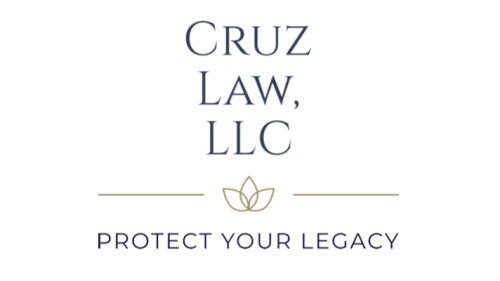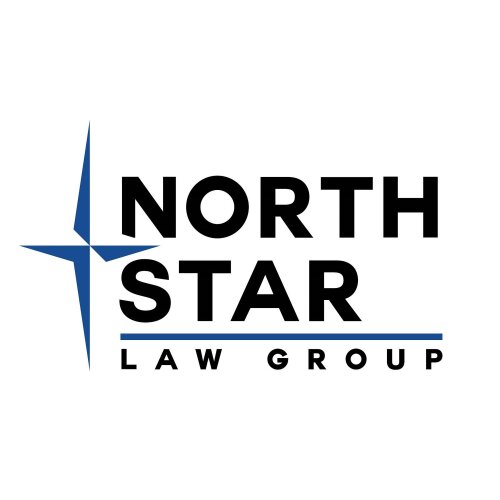Best Trusts Lawyers in Alaska
Share your needs with us, get contacted by law firms.
Free. Takes 2 min.
Or refine your search by selecting a city:
List of the best lawyers in Alaska, United States
About Trusts Law in Alaska, United States
Trusts are powerful legal instruments that allow individuals or entities to transfer and manage assets for the benefit of specific people or purposes. Alaska has established itself as a leading jurisdiction for trusts in the United States due to its progressive and flexible legal framework. The state's trust laws make it attractive for both residents and non-residents seeking privacy, asset protection, tax advantages, and long-term wealth planning capabilities. In Alaska, individuals can create different types of trusts such as revocable living trusts, irrevocable trusts, charitable trusts, and special needs trusts, each with unique features and benefits tailored to various estate planning goals.
Why You May Need a Lawyer
While Alaska provides a favorable environment for establishing trusts, navigating the legal technicalities can be complex. Many people seek legal advice for the following reasons:
- Drafting and structuring a trust document to reflect specific intentions
- Ensuring compliance with both state and federal laws
- Protecting assets from creditors, lawsuits, or divorce
- Implementing tax planning strategies
- Providing for family members with special needs or managing charitable contributions
- Transferring real estate or business interests into a trust
- Handling disputes between beneficiaries and trustees
- Guiding the administration and proper funding of trusts
Having an experienced Alaska trust attorney can help you avoid costly mistakes and tailor a trust to your unique circumstances, ensuring your assets and loved ones are protected according to your wishes.
Local Laws Overview
Alaska has carved out a reputation as a trust-friendly state by enacting statutes designed to offer maximum flexibility, privacy, and asset protection. Key aspects of Alaska's trust laws include:
- Alaska Trust Act: This foundational law allows for the creation of asset protection trusts that can shield assets from future creditors while providing for beneficiaries.
- Self-settled trusts: Alaska permits individuals to create trusts for their own benefit while offering protection from certain creditors. This is not permitted in all states.
- Dynasty trusts: Alaska law allows trusts to last for up to 1000 years, enabling long-term wealth preservation for multiple generations without triggering transfer taxes repeatedly.
- Privacy provisions: Trust agreements and court filings related to trusts can be kept confidential, safeguarding the privacy of settlors and beneficiaries.
- Directed trustees: Alaska recognizes the use of directed trusts, where investment or distribution advisors can be appointed to make specific decisions, separating duties for enhanced management.
- Favorable tax treatment: Alaska has no state income tax, making it attractive for trust situs and administration for both residents and non-residents.
It is important to comply with all relevant statutes and rules, particularly around trust registration, trustee duties, reporting, and the legal limitations for asset protection.
Frequently Asked Questions
What is a trust?
A trust is a legal arrangement where one party, known as the trustee, holds and manages assets on behalf of another party, called the beneficiary, according to the terms set by the grantor who creates the trust.
Can non-residents of Alaska create an Alaska trust?
Yes, Alaska law allows non-residents to create and benefit from trusts administered in Alaska, often taking advantage of the state's favorable trust statutes and tax advantages.
What types of trusts can be established in Alaska?
Alaska permits a wide variety of trusts, including revocable living trusts, irrevocable trusts, charitable trusts, special needs trusts, and self-settled asset protection trusts.
How do Alaska asset protection trusts work?
Asset protection trusts in Alaska allow a settlor to transfer assets into a trust for their own benefit while protecting these assets from most future creditors, subject to certain limitations and exceptions in the law.
Are trust documents in Alaska private?
Yes, Alaska law provides significant privacy for trust documents, meaning court filings and trust agreements do not have to be made public except under limited circumstances.
How long can a trust last in Alaska?
Alaska permits dynasty trusts, which can last up to 1000 years, allowing wealth to be preserved for many generations and minimizing exposure to transfer taxes.
What are the duties of a trustee in Alaska?
Trustees are fiduciaries and are legally required to act in the best interests of the beneficiaries, manage assets prudently, keep records, and comply with the terms of the trust and state laws.
Can a trust help avoid probate in Alaska?
Yes, assets placed in a properly structured trust generally bypass probate, ensuring a smoother and more private transfer to beneficiaries.
Are there tax benefits to setting up a trust in Alaska?
Alaska does not have a state income tax on trust income, which may result in tax advantages depending on your individual situation and residency status, though federal taxes may still apply.
Do I need a lawyer to create a trust in Alaska?
While you are not legally required to hire a lawyer, working with a qualified trust attorney is strongly recommended to ensure your trust is valid, effective, and meets all legal requirements.
Additional Resources
Individuals seeking legal information or services related to trusts in Alaska can benefit from the following resources:
- Alaska Court System - Probate and Estate Division for forms and procedural information
- Alaska Bar Association for attorney directories and public information about legal services
- Alaska Department of Commerce, Community, and Economic Development for information on business trusts
- Local law libraries in Anchorage, Fairbanks, and Juneau for legal research assistance
- National organizations such as the American College of Trust and Estate Counsel for educational material
Next Steps
If you are considering setting up a trust or have questions about your current trust arrangement in Alaska, here is how you can proceed:
- Gather information regarding your assets, family structure, and your goals for creating a trust.
- Consult with a knowledgeable Alaska trust attorney who can explain your options and guide you on the best structure for your needs.
- Work with your attorney to draft, review, and execute the necessary trust documents in compliance with Alaska law.
- Transfer or retitle assets into your trust as directed by your attorney to ensure your trust is properly funded and effective.
- Regularly review your trust and update it when your circumstances or Alaska trust laws change.
Professional legal advice can help you avoid pitfalls and ensure your trust accomplishes your intended outcomes for yourself and your beneficiaries.
Lawzana helps you find the best lawyers and law firms in Alaska through a curated and pre-screened list of qualified legal professionals. Our platform offers rankings and detailed profiles of attorneys and law firms, allowing you to compare based on practice areas, including Trusts, experience, and client feedback.
Each profile includes a description of the firm's areas of practice, client reviews, team members and partners, year of establishment, spoken languages, office locations, contact information, social media presence, and any published articles or resources. Most firms on our platform speak English and are experienced in both local and international legal matters.
Get a quote from top-rated law firms in Alaska, United States — quickly, securely, and without unnecessary hassle.
Disclaimer:
The information provided on this page is for general informational purposes only and does not constitute legal advice. While we strive to ensure the accuracy and relevance of the content, legal information may change over time, and interpretations of the law can vary. You should always consult with a qualified legal professional for advice specific to your situation.
We disclaim all liability for actions taken or not taken based on the content of this page. If you believe any information is incorrect or outdated, please contact us, and we will review and update it where appropriate.
Browse trusts law firms by city in Alaska
Refine your search by selecting a city.
















